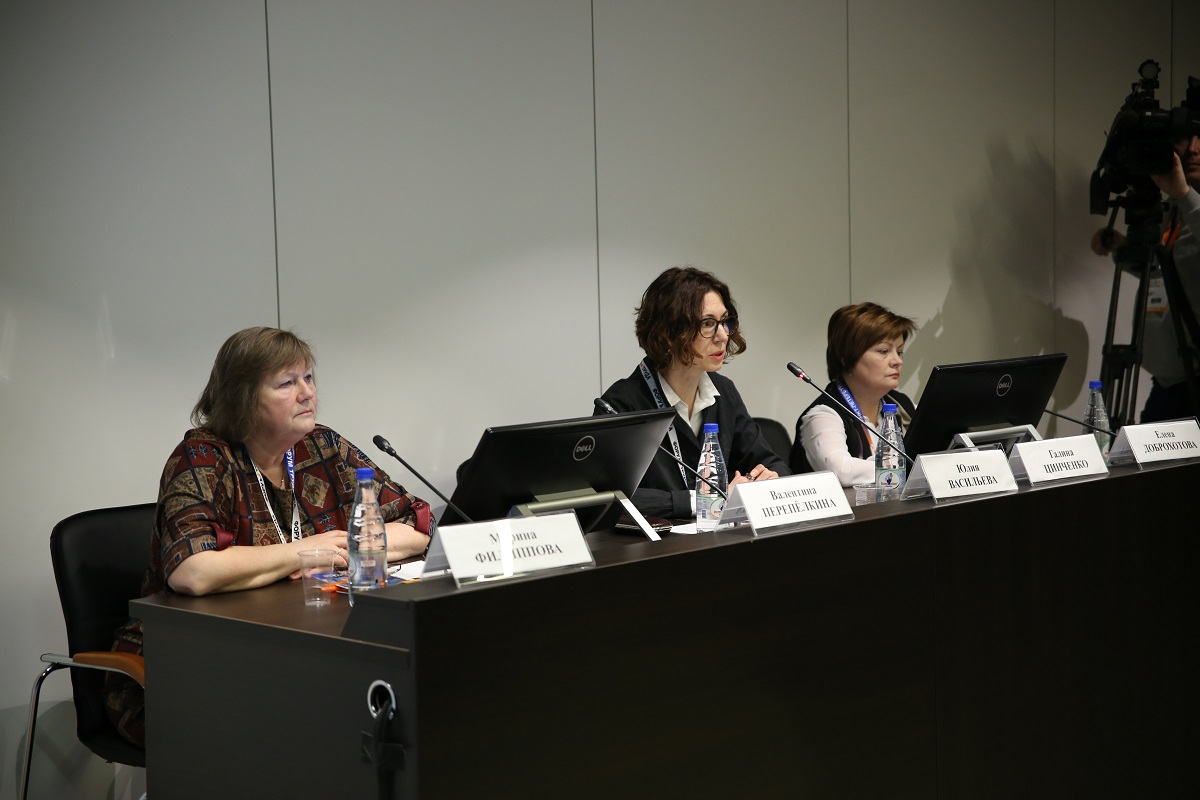Labour Forum expert: only 37% of disabled in St Petersburg have jobs

‘In St Petersburg roughly 37 percent of the disabled are employed, and this is the highest figure anywhere in the country,’ said St Petersburg University Associate Professor Marina Filippova speaking at the 4th St Petersburg International Labour Forum. Even so, she went on to say, this is not enough. According to the Federal Register of Disabled Persons, there are almost 12 million persons with disabilities in Russia, and 3.5 million of them are of working age.
Some people with disabilities are unable to find employment because of their health, while others face the challenge of finding a suitable job. According to Ms Filippova, it is particularly difficult for them to find a job on the open market, which is to say at ordinary factories where they have to compete with workers who are not disabled. The government, therefore, uses special mechanisms: establishing quotas for the employment of persons with disabilities, reserving jobs, creating conditions for entrepreneurship, teaching them new professions, and introducing tax benefits and wage subsidies on their behalf. ‘But these mechanisms work poorly,’ Ms Filippova stressed. ‘No more than 60 percent of businesses fulfil their responsibilities to create special jobs for the disabled.’
This is often the case because employment of the disabled requires not only special devices that will allow them to do their work but also special workplace arrangements: wide passageways, handrails, lifts for those who are in wheelchairs, signs for the visually impaired. In addition, the labour laws contain certain restrictions: the disabled cannot be asked to work overtime or at night, or to go on business trips.
These restrictions are perfectly legitimate, but employers see them as additional encumbrances. And the economic incentives for businesses are insufficient.
St Petersburg University Associate Professor Marina Filippova
According to the experts, it is easier today for a potential employer to pay a fine for violation of the law than to provide jobs for the disabled.
In order to motivate businesses to employ the disabled, the Committee on Labour and Employment of the Population of St Petersburg has launched the pilot project Social Employment of the Working-Age Disabled. Businesses are being invited to place orders for work that can be performed by people with mental or motor disabilities. The work is carried out in special ateliers under the supervision of mentors. The tasks, such as assembly, packaging, sorting, grinding, gluing, souvenir making, working with plants, and landscaping, are simple and do not require special competencies.
However, according to participants in the forum panel Social Employment: The Road to Social Welfare, such employment programmes are poorly established in Russia. Iuliia Vasileva, a professor at Perm State National Research University, recalled that in the Soviet Union there were around 2,500 factories in which there were separate workshops and parts of the production line that were operated by disabled persons, for example by the blind or the deaf. ‘Unfortunately, they have not survived the transition to a market economy,’ she said.
The experts stressed that the best employment option for the disabled is the open market, because this makes it possible to integrate them more fully into society. Registration on the Work in Russia portal is one of the ways of finding a job. Here, the disabled will find vacancies for quota places, and they will be able to register at the Job Centre.
The only legitimate reason for refusing to hire a disabled person is a lack of training. An employer cannot invoke their disability, as it is prohibited by the Labour Code.
The government also has an interest in employing the disabled, not only for social but also for economic reasons. If a disabled person is not employed and paid a wage, their level of security will be low, and the government will still have to provide them with social assistance. Ms Filippova summed it up: ‘If all who want to and can do so are able to work and earn a living, it is to the benefit of both the society and the government.’
It should be noted that on the site of the 4th St Petersburg International Labour Forum, there is a fair of souvenirs that have been made in apprentice workshops and social rehabilitation centres in St Petersburg. The organisers of this fair are trying to demonstrate the work and professional skills of persons with unlimited abilities.

